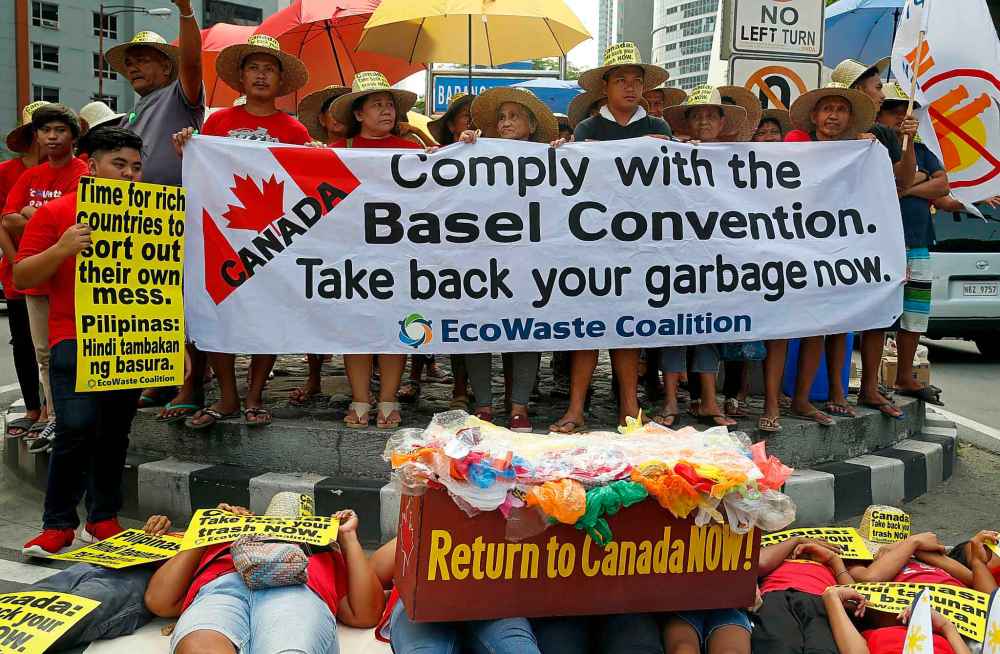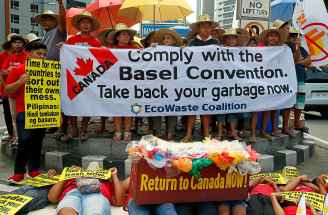For Canada, it’s time to take the garbage in
Read this article for free:
or
Already have an account? Log in here »
To continue reading, please subscribe:
Monthly Digital Subscription
$0 for the first 4 weeks*
- Enjoy unlimited reading on winnipegfreepress.com
- Read the E-Edition, our digital replica newspaper
- Access News Break, our award-winning app
- Play interactive puzzles
*No charge for 4 weeks then price increases to the regular rate of $19.00 plus GST every four weeks. Offer available to new and qualified returning subscribers only. Cancel any time.
Monthly Digital Subscription
$4.75/week*
- Enjoy unlimited reading on winnipegfreepress.com
- Read the E-Edition, our digital replica newspaper
- Access News Break, our award-winning app
- Play interactive puzzles
*Billed as $19 plus GST every four weeks. Cancel any time.
To continue reading, please subscribe:
Add Free Press access to your Brandon Sun subscription for only an additional
$1 for the first 4 weeks*
*Your next subscription payment will increase by $1.00 and you will be charged $16.99 plus GST for four weeks. After four weeks, your payment will increase to $23.99 plus GST every four weeks.
Read unlimited articles for free today:
or
Already have an account? Log in here »
Hey there, time traveller!
This article was published 28/05/2019 (2387 days ago), so information in it may no longer be current.
The garbage is coming home.
Well, some of it, anyway.
Last week, after nearly six years of shameful dithering, delays and denial of responsibility, the Canadian government seemed finally to have figured out a way to repatriate 69 shipping containers — 1,500 tonnes in all — of trash that had been mislabelled and illegally shipped to the Philippines as recyclable material.

The masses of non-recyclable refuse are the remainders of a shipment of 103 containers sent overseas by a now-defunct Canadian company in 2013 and 2014, labelled as recyclable plastic. Upon inspection by the Philippine government, it was revealed that the containers held mostly regular Canadian household trash and electronic waste; among the contents were kitchen scraps and used adult diapers.
The Philippine government demanded that the refuse be returned to its country of origin. The Canadian government alternated between pleading with the Philippines to deal with the garbage there and insisting it had no legal way to force the offending company to deal with the mess it had moved overseas. Prime Minister Justin Trudeau was confronted twice about the trash, first in 2015 and again in 2017, during visits to the Philippines, but couldn’t muster more than a few words of concern and vague assurances that a solution was being sought.
The situation is, in a word, embarrassing.
In 2016, a Philippine court ruled the garbage should be returned to Canada. Still, government officials here deflected and delayed. Things came to a head last month, when notoriously combative Philippine President Rodrigo Duterte threatened to “declare war” on Canada if it didn’t reclaim the containers.
Finally, it was announced that Canada had engaged a company to collect the containers and ship them back to the West Coast; a deadline of late June was specified for the move. Mr. Duterte rejected that timeline, saying his country would move immediately to take out the trash in a Canadian-bound direction. Either way, the garbage is coming home and a Burnaby, B.C., company that turns waste into electricity will receive and process it.
Finally, an end to a humiliating episode that cast Canada as a global eco-villain of considerable proportion. Time, perhaps, for the Maple Leaf to reclaim its clean and green reputation.
Except…
On Monday, officials in Malaysia shouted, “Not so fast!” and identified Canada as one of several international culprits — along with the United States, China, Japan and Saudi Arabia — caught shipping common household waste under the guise of recyclables.

“I hope this will make Canadians angry as well,” Malaysian Environment Minister Yeo Bee Yin said as a crew opened several of the offending containers in view of assembled media at a facility outside Kuala Lumpur. “This is the irresponsible export of plastic, of waste. It’s household garbage; it smells bad.
“We are going to send this back to Canada. We really hope the people of Canada will demand better tracking and monitoring of your waste recycling.”
Like the trash in question, this country’s behaviour stinks — again. And one can only hope that, regardless of the current corporate status of the firm(s) responsible for this irresponsible export, Canada’s government will not embark on a years-long effort to deny responsibility and delay the return of what’s rightfully, wastefully ours. The developed world — Canada included — cannot continue to produce daily mountains of refuse on the assumption it can treat the developing world as its de facto rubbish tip.
The process of cleaning up our act won’t be easy, but doing the right thing in circumstances like this surely should be.









